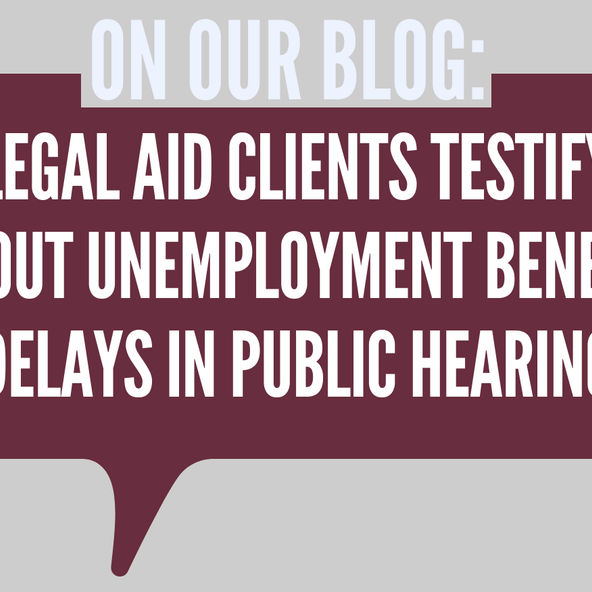
On September 16, 2020, six Legal Aid clients were among the 60 witnesses who testified before the District of Columbia Council’s Committee on Labor and Workforce Development’s public hearing on the performance of the Department of Employment Service (DOES). The stories the witnesses shared revealed widespread problems with unemployment benefit processing during the pandemic – including difficulty accessing CARES Act benefits like Pandemic Unemployment Assistance (PUA). These problems include benefit delays, unclear information, technological difficulties, and other systemic challenges with the current system for requesting and receiving unemployment benefits.

Legal Aid client Adela Perez-Guzman testified about the difficulties she faced during the long wait to hear back about her application for unemployment: “My husband and I didn’t know how we were going to pay for food, pay for rent for ourselves and for our children.”
Legal Aid client Vontanell Tillman testified about the delays she faced when trying to contact DOES, waiting on hold for as much as five hours at a time to speak with a representative, or sometimes being unable to connect with a representative at all. Legal Aid client Cynthia Spencer experienced similar delays, waiting on hold for hours to find out why she was not receiving benefits. These delays in service translated to delays in applicants receiving benefits to which they are legally entitled. For example, Legal Aid client Tilahun Hailemeskel testified that he waited four months before he received PUA, and even once he received these benefits, he continued to experience problems.
Clients’ testimony also demonstrated the difficulty that many D.C. residents who speak languages other than English face when they try to apply for unemployment. Legal Aid client Adela Perez-Guzman testified that when she tried to apply for benefits, she was unable to access forms in Spanish, and when she called over the phone, she had difficulty accessing interpreter services.

Legal Aid client Thomas Kennerly testifies: “My experience with DOES was demeaning and degrading. It was something I was entitled to, but I was made to suffer and humiliated.
Legal Aid, along with five other legal organizations, testified as well and submitted a joint statement. Supervising attorney Drake Hagner described a number of systemic flaws in the DOES unemployment compensation system that prevent timely access to benefits for far too many workers. These problems include (1) delays with initial claims processing, (2) inadequate language access services, (3) preventable legal errors, and (3) unfair overpayment recoupment practices. Drake proposed several important and manageable steps that DOES can take to help address these problems, such as translating documents, providing secure drop boxes for individuals to submit applications and other documents, and ensuring that individuals are able to access the DOES website and submit claims from their mobile phones. These improvements can help individuals to access the unemployment benefits that they need to support themselves during the public health crisis, as well as ensure that DOES is better prepared the next time there is a large-scale unemployment crisis.
The Labor committee is planning to host a series of monthly roundtables in the coming months. We strongly encourage D.C. workers to apply if they have experienced difficulties receiving benefits. Committee chairperson Elissa Silverman will post details on these roundtables on her committee website in the near future.

Legal Aid supervising attorney Drake Hagner testified: “The COVID pandemic has laid bare systemic problems in our unemployment compensation system. These problems were exposed by the pandemic, but they were not caused by it.”




